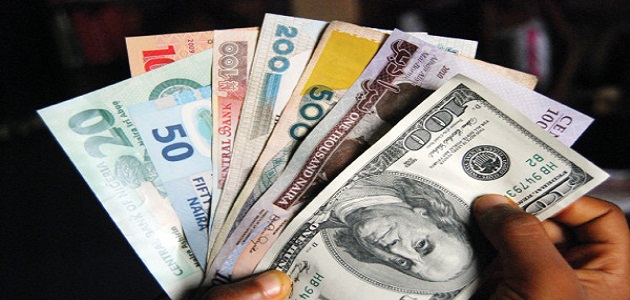
Despite the federal government’s refusal to devalue the naira, the Consumer Price Index (CPI), which measures inflation, rose significantly to 11.4 per cent in February compared to 9.6 per cent the previous month, the National Bureau of Statistics (NBS) said on Tuesday.
It attributed the 1.76 per cent rise in the headline index to the faster pace of increase across almost all major divisions that contribute to the index with the exception of the restaurants and hotels division which also rose, albeit, at a slower pace.
The Central Bank of Nigeria (CBN) has argued at every opportunity that devaluing the currency would result in import-induced inflation. However, the currency curbs it put in place since last year to conserve foreign reserves and prop up the naira, have led to sharp spikes in the prices of goods and services in a slowing Nigerian economy.
According to the NBS, the pace of increase of food prices as recorded by the food sub-index increased at a faster pace in February, with the food index rising by 11.3 per cent, up by 0.71 per cent from what was recorded in January.
The NBS stated that “during the month (February), all major food groups which contribute to the food sub-index increased at a faster pace during the month with the exception of potatoes, yams and other tubers group and sugar, jam, honey, chocolate and confectionery groups”.
The urban index rose by 12.3 per cent (year-on-year) from 9.7 per cent in January, while the rural index also rose to 10.7 per cent in February from 9.5 per cent the month before.
On a month-on-month basis, both the urban and rural indices increased at a faster pace, as the urban index increased by 3.0 per cent in February from 0.9 per cent in January, while the rural index increased by 1.8 per cent from 0.9 per cent in January.
Also, the core sub-index increased at a faster pace in February as imported items as well as other domestic shocks resulted in ripple effects across many divisions that contribute to the core index.
The core sub-index rose to 11.0 per cent in February, roughly 2.2 per cent from the rate recorded in the previous month.
“Imported food items as well as other necessary inputs to producing key local staples such as bread continue to drive the food index higher. The food index increased to 11.3 per cent (year- on-year), 0.7 per cent points higher from rates recorded in January.
“The highest price increases were recorded in the fish, vegetables and bread and cereals groups for the second consecutive month,” NBS said in its monthly inflation report.
However, the average monthly price paid by Nigerian households for a litre of petrol across the country dropped to N99.76/litre in February compared to N109.59/litre, the NBS further stated.
The official pump price of petrol remained unchanged at between N86 and N86.50/litre, but figures provided showed that on the monthly average, Nigerians have continued to purchase petrol above the official rate in the period under review.
According to the NBS report for February, Ogun and Edo States recorded the lowest monthly average price of N86.53 and N86.50 respectively for a litre of petrol.
On the other hand, Yobe and Bayelsa States accounted for the highest monthly average price of petrol at N122.88 and N120.06 respectively.
Abuja and Lagos recorded monthly averages of N92.70 and N87.03 respectively.
Source: ThisDay
